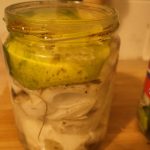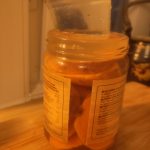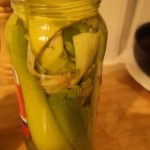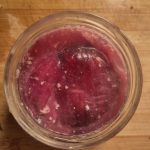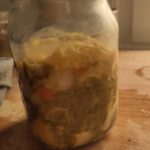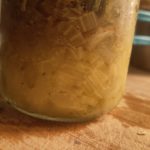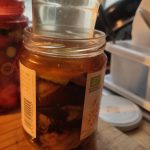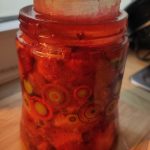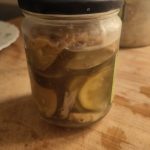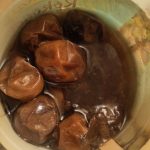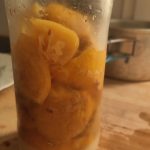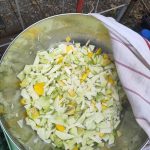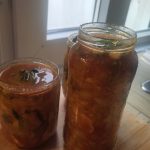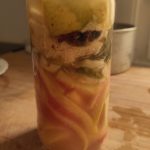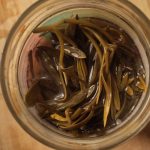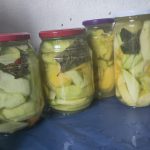My life got upgraded to a whole new level of curiosity and exploration since I started to ferment whatever vegetable and fruit passes my way. Here I want to share with you some of my most favourite recipes as well as some inspiration that helped me a lot to get into fermenting. It is much easier than it seems. There are few but important rules. As the people who know me know, strict recipes are not so much my thing. Fermentation is great. Its not about exact measurements but more roundabout. And still after some years of living the fermentation life, I am still far from quitting the exploring and experimenting. The range of recipes is endless and even using the same ingredients, fermenting is never the same. The process is to a certain extent uncontrollable, just like life. It is very open-source, so should be this recipe collection. If you have some ideas for new recipes to be added here, plsss let me know 🙂

Why fermenting?
My little fermentation manifesto
Fermentation is for me an investment in the future. Taking the delicious vegetables and fruits that could be eaten today on the side to make them even better for tomorrow. To take the time to prepare the ferment, to patiently watch the altering vegetables while accumulating all this taste. It is slow food at its best. Also, it is giving up control in a world where sometimes a bit too much is controlled (or at least thought so).
With fermentations we give over to the microbes and let them be in charge. Fermentations make the unseen visible and also shows all the benefits that microorganisms can bring for us (particularly for our gut). So often the spotlight is on the bad guys, but they are so much more than.
Fermentation is also like a radical manifestation for nutrients. A wide share of food available in supermarkets is devoid of nutrients. Instead, sugar, empty carbs, preservatives and taste additives are dominant. Fermenting food is an anti-movement to the convenience food.
Fermenting is like a little ceremony, a ritual appreciating our ancestors for coming up with this great method of conserving food long before knowing its health benefits – just based on experimenting and trusting the instinct.
Fermented food connects us with our instinct. Since every ferment is a little surprise we still need to rely on our instinct whether things went well or not. If not enough salt is added, the not so good microorganisms can take over. If the vegetables/fruits are not submerged in liquid, aerobic microorganisms can form mold. What we want instead are the anaerobic, ‘underwater’ microorganisms working without oxygen.
And last but not least, fermentation is easy. There are few, but very important rules. Enough salt, submerged in liquids, clean jars and good quality of products are essential. In a nutshell, the formula for fermentations is salt (untreated), water (if necessary filtered) and the vegetable, fruit. Spices and herbs are optional. The rest is done by the time and microorganisms. To make sure we activate the right microorganisms, we need to make sure the fermentation is anerobic, no oxygen reaches to the vegetables/fruits.
Fermentation has this power to connect us back to be in charge of our food preparation. A fridge full of fermented jars is a perfect backup plan for small, great upgrades of work lunches throughout the week. Like upgrading a simple rice or pasta dish or a sandwich.
Lets ferment more!

Recipe collection
- Fermented cauliflower stalk
- Fermented sweet potatoe
- Fermented leek
- Fermented red onions
- Best chili pepper sauce
- Fermented chard
- Fermented celery
- Fermented aubergines
- Fermented strawberries
- Crunchy fermented cucumbers
- Best fermented plums
- Salt lemons
- Best lemonade – water kefir
- Amba (fermented mango sauce)
- Kimchi
- Watermelon skin in salt brine
- Sea fennel in salt brine
- Pickled mangos

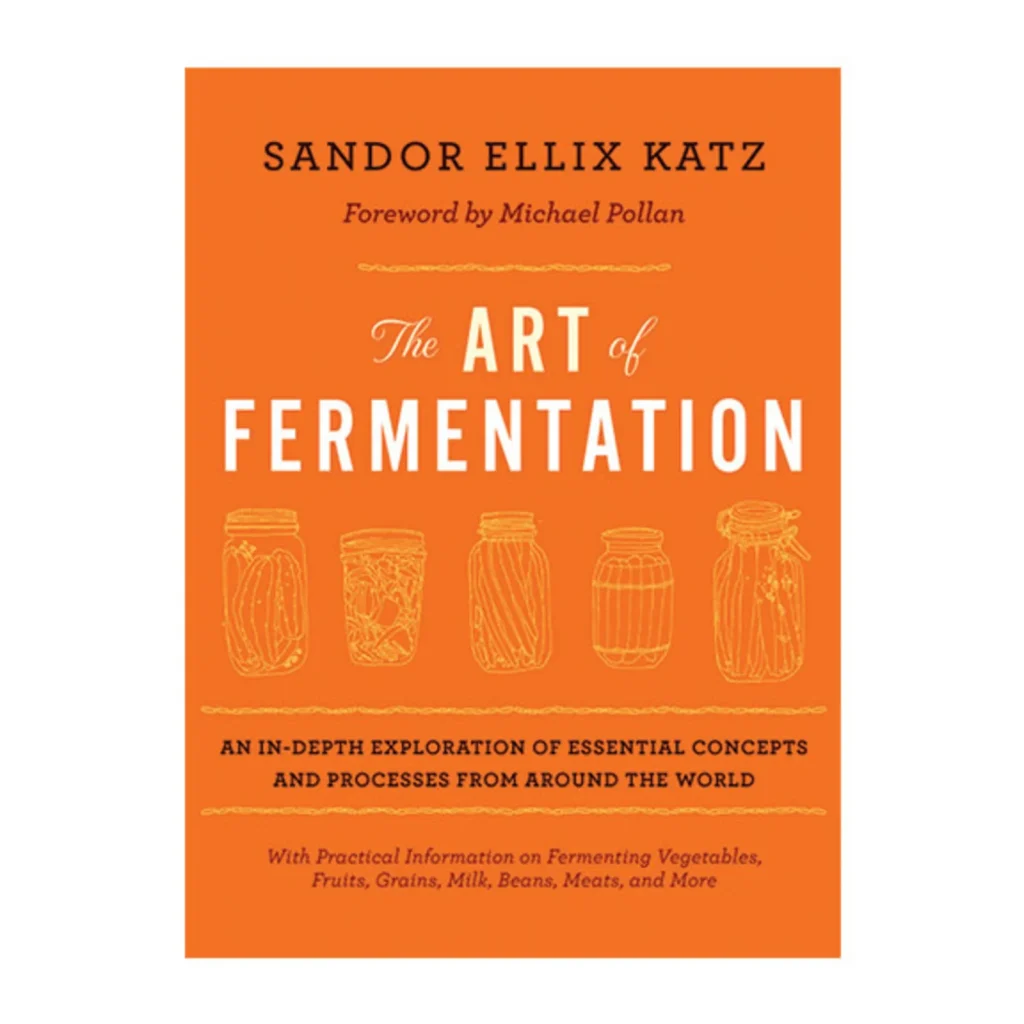
My eternal source of inspiration
I learned most from my fermentation bible, ‘The Art of Fermentation: An In-Depth Exploration of Essential Concepts and Processes from Around the World’ by Sandor Ellix Katz (2012). I highly recommend it to everybody who is keen on starting to ferment, understanding the background, the origin, and also discovering some great recipes from all over the world. The global aspect of fermentation is one of my favorite aspects. Almost all cultures offer recipes on how to preserve their vegetables through fermentation. Some of those recipes are a bit more hidden than others; some cultures have kind of forgotten about them and are slowly going through revivals, as the health benefits become more and more obvious. My own background is an example. Many Germans forgot the importance of sauerkraut and the original recipes for preserving sour cucumbers.
To learn more on the benefits of fermentation for your health and gut microbiome, I can recommend this episode of the ZOE podcast.
There is also Sandor Ellix Katz giving a great interview on his book “Fermentation as metaphor” in this episode of the Emergence podcast.

